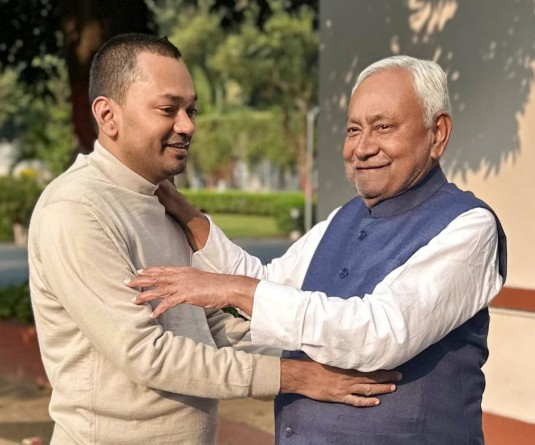
Kashmiri boys play cricket at a closed market area during a strike in Srinagar, April 9. Shops and schools in Indian-controlled Kashmir are closed to protest the blast that killed a moderate Muslim religious leader outside a mosque in the disputed Himalayan region. (AP Photo)
WASHINGTON, April 9 (PTI): Separatists and terrorists in the Indian states of Jammu and Kashmir and northeast along with the Maoists committed serious human rights abuses, an official US report said, even as it slammed the government for extra-judicial killings. “Separatist insurgents and terrorists in Jammu and Kashmir, the northeastern states and the Naxalite belt committed numerous serious abuses, including killing armed forces personnel, police, government officials, and civilians,” said the US state department’s Country Reports on Human Rights Practices for 2010.
“Insurgents engaged in widespread torture, rape, beheadings, kidnapping, and extortion. The number of incidents, however, declined compared with the previous year,” said the Congressional-mandated annual report released by secretary of state Hillary Clinton. According to the India section of the report, there were numerous reports that the government and its agents committed arbitrary or unlawful killings, including extra-judicial killings of suspected criminals and insurgents, especially in areas of conflict such as Jammu and Kashmir, the northeastern states, and the Naxalite belt.
The report, which provides encyclopedic detail on human rights conditions in over 190 countries for 2010, said Indian government made no progress in holding officials accountable for abuses that occurred during the period of the Punjab counterinsurgency between 1984 and 1994. It said civil society activists continued to express concern about the Gujarat government’s alleged failure to arrest those responsible for communal violence in 2002 that resulted in the killing of more than 1,200 persons, the majority of whom were Muslim. “Unlike in previous years (2008 and 2009), there were no instances of officials using anti-terrorism legislation to justify excessive use of force. However, indiscriminate use of force by BSF was a problem,” it said.
The state department report claimed corruption “existed at all levels of government and police,” with “delays in obtaining legal redress for past attacks against minorities.” The law in some states restricted religious conversion, but there were no reports of convictions under these restrictions. It also claimed that violence associated with caste bias occurred. “Domestic violence, child marriage, bonded labour, dowry-related deaths, honour crimes, and female feticide remained serious problems,” the report said.
“Insurgents engaged in widespread torture, rape, beheadings, kidnapping, and extortion. The number of incidents, however, declined compared with the previous year,” said the Congressional-mandated annual report released by secretary of state Hillary Clinton. According to the India section of the report, there were numerous reports that the government and its agents committed arbitrary or unlawful killings, including extra-judicial killings of suspected criminals and insurgents, especially in areas of conflict such as Jammu and Kashmir, the northeastern states, and the Naxalite belt.
The report, which provides encyclopedic detail on human rights conditions in over 190 countries for 2010, said Indian government made no progress in holding officials accountable for abuses that occurred during the period of the Punjab counterinsurgency between 1984 and 1994. It said civil society activists continued to express concern about the Gujarat government’s alleged failure to arrest those responsible for communal violence in 2002 that resulted in the killing of more than 1,200 persons, the majority of whom were Muslim. “Unlike in previous years (2008 and 2009), there were no instances of officials using anti-terrorism legislation to justify excessive use of force. However, indiscriminate use of force by BSF was a problem,” it said.
The state department report claimed corruption “existed at all levels of government and police,” with “delays in obtaining legal redress for past attacks against minorities.” The law in some states restricted religious conversion, but there were no reports of convictions under these restrictions. It also claimed that violence associated with caste bias occurred. “Domestic violence, child marriage, bonded labour, dowry-related deaths, honour crimes, and female feticide remained serious problems,” the report said.






